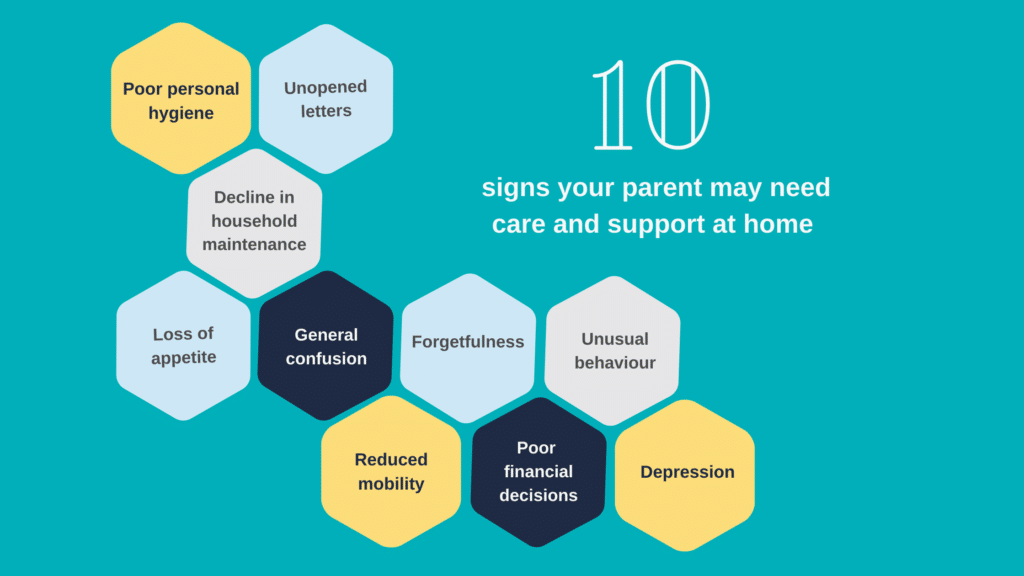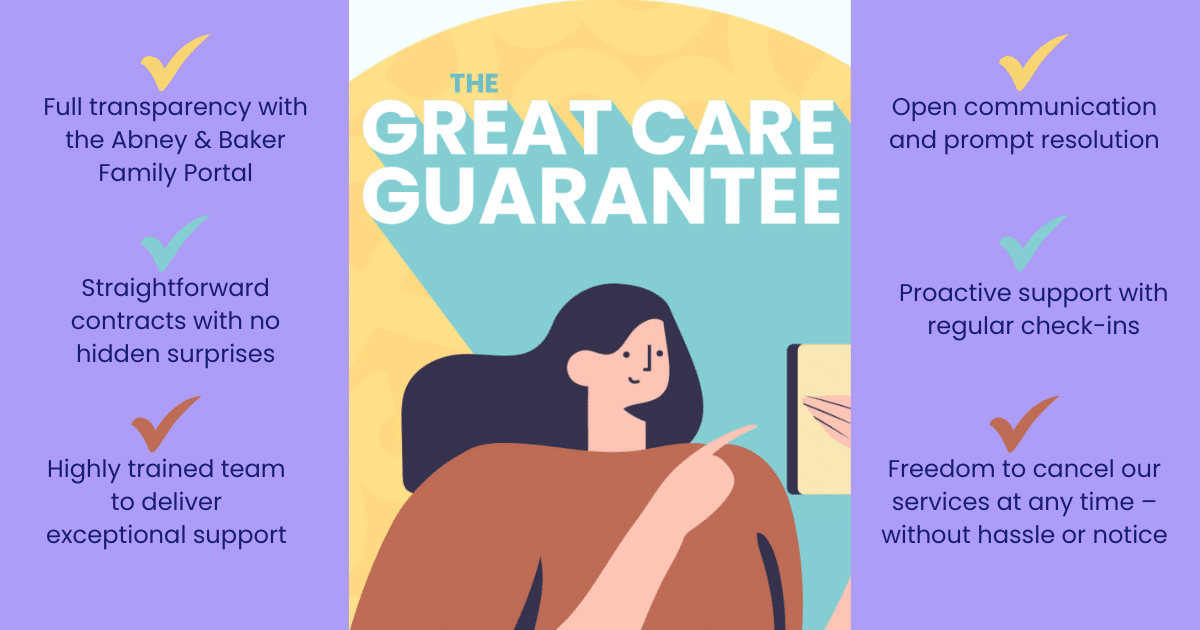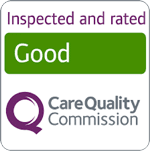As family members age, they’re likely to require more help and support with daily life around their home. You may start noticing small things that make you think a helping hand could be needed.
Here we bring together the most commonly shared signs that it may be time to look for some extra help. With care and support at home you can ensure your mum or dad continue to live happily, confidently, safely and independently in the comfort of their own home.

#1 Poor personal hygiene
Keep an eye on your parent’s level of self care. Is their hair often uncombed, their teeth unbrushed, they haven’t been showering or you notice their clothes don’t smell to fresh? These can be tell tale signs they’re struggling to keep on top of their personal hygiene.
It’s important not to embarrass your parent when you notice signs of poor personal care so gently broach the topic.
#2 Decline in household maintenance
You may start to notice unwashed dishes beginning to gather in the sink, laundry piling up or kitchen sides and floor seeming dirtier than usual. Don’t forget to look outside – is their garden looking overgrown e.g. the lawn needs mowing?
It’s also worth keeping an eye on how they care for their pets if they have any. Are they feeding them regularly, are they clearing up after them, do they appear as groomed as usual?
These could be signs of physical inability or mental forgetfulness. If maintaining their home is becoming too overwhelming, then it’s time to bring in homecare services help to give you and them peace of mind.
#3 Unopened letters
#4 Poor financial decisions
Besides not paying bills on time, you may notice your parent is spending money on things or in places where they wouldn’t normally do. Examples could include buying products advertised on the shopping channel or donating to every charity that contacts them asking for money with direct payments.
It’s important to keep an eye out for this so your parent doesn’t fall for a scam and their personal information doesn’t fall into the wrong hands.
#5 Reduced mobility
Reduced mobility is common with older people. First signs that your parent may be struggling are often bruises and injuries from losing balance and falls. Injuries could be serious so it’s key to recognise their needs early on so solutions can be found and ensure they’re fully supported with domiciliary care.
Also keep an eye out for your parent struggling to get up from their chair, finding their stairs trickier than before, slipping on kitchen floor tiles more than usual, bumping into the side of furniture regularly.
#6 General confusion
Your parent may start to experience confusion as they get older. It may not always be serious, but it is something that should be monitored. Keep an eye out for them easily losing track of time or starting to sleep at unusual times. If they drive, they might start forgetting where they’re going or where they are.
Confusion and forgetfulness go hand in hand. Always be kind and gentle when broaching this subject with your parent as it can cause them to worry or feel defensive.
#7 Forgetfulness
If your parent has begun to forget to go to appointments they booked, started repeating themselves, forgetting to take their medication or putting common objects in illogical places, it may be a sign they need extra support.
Today they are dealing with the COVID situation and the pandemic, this may make them even more unsure of what their daily tasks are. It may be that they need some extra support and care services to ensure they can continue to live safely and happily at home.
#8 Depression
#9 Unusual behaviour
This sign goes hand in hand with depression and confusion. When your parent has confusion about their identity, their decision making becomes impaired. You may notice them wearing the wrong type of clothing for the weather or acting rude and mean when they’re usually kind. They may start calling you at inappropriate times, like in the middle of the night.
Have you noticed a change in your parents’ personalities, especially in the evening? Are they talking too loudly or too softly? Are they accusing people of doing or saying things against them, wanting to check on children or displaying other unusual behaviours?
If your parent has stopped being social, active and visiting friends this is a sign they may need some support. The first step is to ask why they’re no longer interested in these activities.
#10 Loss of appetite
Are your parents losing weight, becoming dehydrated, not cooking, forgetting to eat or eating unhealthy? They might be having trouble cooking, reading a recipe, holding utensils or operating the oven, or they may have difficulty with the senses of taste and smell.
Check the fridge for out of date food, it may be that they’re forgetting to eat or to do food shopping.
If you do spot the above signs, chat to your parents, explain why you’re concerned and that you want to help and work on a solution together.
Download your guide to ‘How to talk to a loved one about care at home’ to discover the best way to approach the subject and get them involved in their care and support.
Helping your loved one to continue living independently and confidently in their own home.
By providing a range of support at home, we’re helping many clients across Bath & North East Somerset and West Wiltshire retain their independence and stay in control in the comfort of their own homes.
Remember we’re always here if you want to chat about your care options. Just get in touch:
Call 0333 043 4880 – Email enquiries@abneyandbaker.com – Book a call here














